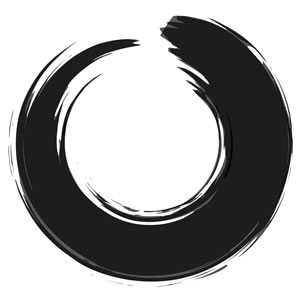How much is enough?
I’ve had this feeling before
My heart is crawling in the mud, mud, mud
I’d feel much better, I’m sure
If I had a helicopterLyrics to ‘Helicopter’ by Dan Gillespie Sells (performed by The Feeling)
As regular readers know, my freelance career began in 2005, when I was made redundant. With the reassuring structure of the working day and a ‘career’ removed, I started looking for something else to organise my life around. Appropriately (or perhaps inevitably) I found it in writing – specifically, self-help books and Zen Buddhist literature.
 Self-help is often ridiculed by those afraid of its implication: self-responsibility. But when you’re setting out as a freelance, it’s just the ticket. Self-help gives you the ways of thinking and seeing you need to live deliberately and consciously, rather than according to someone else’s design. In principle at least, it shows us how to lift ourselves out of what Jean-Peal Sartre (in La Nausée) and Samuel Beckett (in Comment C’est) termed le bout: the ‘mud’ of everyday existence.
Self-help is often ridiculed by those afraid of its implication: self-responsibility. But when you’re setting out as a freelance, it’s just the ticket. Self-help gives you the ways of thinking and seeing you need to live deliberately and consciously, rather than according to someone else’s design. In principle at least, it shows us how to lift ourselves out of what Jean-Peal Sartre (in La Nausée) and Samuel Beckett (in Comment C’est) termed le bout: the ‘mud’ of everyday existence.
Zen teaches even more fundamental skills: mindfulness, acceptance and self-discipline. If genuinely taken to heart and experienced fully (as opposed to just being understood on an intellectual level), Zen offers the potential to transform our entire perception – our whole existence. That hasn’t happened to me yet, but Zen still seems more real and true to me than any other religion, including the low Protestantism of my upbringing.
Culture clash
At first, all these ideas went into the melting pot together and I took whatever value I could from them, mixing and matching to create a worldview that helped me freelance. But as time went by and I thought about them more deeply, I realised that there were fundamental incompatibilities between the two schools of thought. While there is some common ground in terms of self-discipline and self-awareness, the differences are bigger than the similarities.
While self-help dresses itself in New Age clothes, there’s often a strong undercurrent of materialism – particularly with US authors. Progress and growth soon shade into acquisition and possession. That might be explicit (as in Napoleon Hill’s classic Think And Grow Rich) or more implicit, with a narrative of achieving ‘goals’ that can be anything you want – but are probably worldly rather than spiritual.
Zen, however, proposes ‘non-attachment’ to material things and engagement with the present rather than a focus on the future. It rejects dualism and ‘gaining ideas’, emphasising that the mind is already complete and sufficient in itself. Enlightenment is something already present that we discover or realise, not a goal ‘out there’ that we attain or achieve. And instead of changing things (ourselves, our thoughts, our circumstances, the world), Zen teaches ‘radical acceptance’ of our experience.
Freelancer’s dilemma
These two worldviews go squarely head-to-head in the context of a freelance business.
On the one hand, running your own business is obviously about worldly success and material gain. Building and developing a business is inevitably about growth, addition and returns on investment – getting more. It’s also about change, development and adaptation. It’s about building the circumstances you want, not accepting them. If it isn’t, your freelance business isn’t going to last very long.
Set against that we have the much-vaunted benefits of freelancing – having time to smell the roses, breaking away from the nine-to-five and generally living a more controlled, less driven life. But enjoying these Zen-like benefits means setting aside the ideas of success and self-improvement, even if only for a while. As the saying goes, true wealth is not about having what you want, but wanting what you have – in other words, being in the present and accepting it as it is, rather than constantly grabbing life by the scruff of the neck and dragging it onwards to an imagined future.
Everything begins with choice
Ultimately, everything the freelancer does is a choice. Every job, every client, every step along the road is the result of a decision. Sometimes, it might not feel that way – or we might not want to accept the responsibility. But it’s undeniably true.
So every freelancer has to answer some tough questions. How much success do we really want, or need, and what price are we prepared to pay to get it? How much time will we give up in order to get more money – and how much money will we give up in order to enjoy more of our time? Are we prepared to let some future opportunities go in order to appreciate the present?
We can’t afford to relax too completely, or our business will fall apart. But on the other hand, we don’t want to be eaten up by materialism, clinging to the delusion that owning a helicopter (or whatever) will somehow drag us out of the mud. So we all have to decide what we ultimately want from our freelancing. Just how much is enough?
Tags: Buddhism, Dan Gillespie Sells, Jean-Paul Sartre, Napoleon Hill, Samuel Beckett, Self-help, The Feeling, Think And Grow Rich, Zen